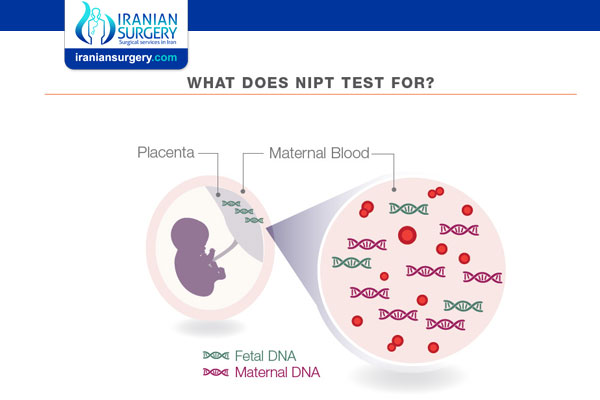Noninvasive Prenatal Testing
Noninvasive Prenatal Testing
What is Noninvasive Prenatal Testing?
Noninvasive prenatal testing is a procedure to learn if a pregnant woman is at risk for having a baby with a chromosomal disorder such as Down syndrome or Duchenne muscular dystrophy. It is also known as cell-free DNA (cfDNA) screening.
DNA is the unique genetic "fingerprint" that makes up a person’s genes and chromosomes. (Chromosomes are made up of genes, which help determine how the body functions.) DNA is present in most of our body’s cells. When a baby is conceived, each parent passes on half of his/her DNA to the baby, whose genetic code, or DNA, is a shared mix of its mother’s and father’s DNA.
Before Noninvasive Prenatal Testing
Why is noninvasive prenatal testing done?
Noninvasive prenatal testing is done to determine a baby’s chances of being born with certain chromosomal disorders. It is recommended for women who are considered at high risk for having such a baby, including women who:
. Are over 35 years old.
. Have already had a child with a chromosomal abnormality.
. Have had an ultrasound that shows that the fetus may have an abnormality.
. Have a chromosomal condition of their own that makes them high-risk.
. Have had an earlier screening test that suggests a potential problem.
Based on the results of this prenatal testing, the doctor may decide to order more tests for chromosomal conditions, and can also help select the best treatment options for any disorders that are found during pregnancy.
The test can also determine if the fetus is a boy or girl. Any woman who is expecting a baby can have noninvasive prenatal testing.
How does a woman prepare for noninvasive prenatal testing?
The test can be done when the woman is at least 10 weeks pregnant, depending on the condition the doctor is looking for. Before the test, the woman has an ultrasound to check the age and development of the fetus. She may also receive counseling to help her prepare for the test results.
During Noninvasive Prenatal Testing
Procedure Details
What happens during noninvasive prenatal testing?
During this test, a sample of the mother’s blood is taken to look for abnormalities in the baby’s DNA.
The mother’s blood contains both her DNA and that of the fetus (through the placenta, the temporary organ that connects the mother’s uterus to the fetus to deliver nutrients and oxygen). The noninvasive prenatal test checks the small fragments of DNA called cell-free DNA, or cfDNA. There must be enough cfDNA present in the blood before the test can be done.
Normally, there are two copies of each chromosome. If the testing finds three copies of a chromosome in the baby’s DNA, there is a higher likelihood that the child will have what is known as a trisomy condition (three copies of a chromosome instead of two). The most common trisomy conditions the test checks for are Trisomy 21 (Down syndrome), Trisomy 18 (Edwards syndrome) and Trisomy 13 (Patau syndrome). The test may also detect missing chromosomes.
Because it is a simple blood test, noninvasive prenatal testing does not have any risks for the mother or fetus.
After Noninvasive Prenatal Testing
Recovery and Outlook
What do the results of noninvasive prenatal testing mean?
Noninvasive prenatal testing screens for chromosomal conditions, but does not diagnose them. The test cannot tell you for certain if your baby has a chromosomal disorder.
If noninvasive prenatal testing indicates that your baby is at risk for a chromosomal condition, your doctor may recommend more testing to confirm the diagnosis. These tests may be more invasive, and include:
. Amniocentesis: During pregnancy, the fetus is surrounded by amniotic fluid, a substance similar to water that contains fetal cells. Amniocentesis is a procedure in which a small amount of amniotic fluid (less than 1 ounce) is removed with a fine needle inserted into the uterus through the abdomen, under ultrasound guidance. The fluid is then sent to a laboratory for analysis. This test can be performed between 14 and 20 weeks of pregnancy.
. Chorionic villus sampling: Chorionic villi are tiny parts of the placenta that are formed from the fertilized egg, so they usually have the same genes as the fetus. During the chorionic villus sampling test, a small sample of chorionic villi cells is taken from the placenta where it attaches to the wall of the uterus. There are two ways to collect the cells: through the vagina or through the abdomen. The sample of chorionic villi is then sent to a lab where the cells are grown in a special fluid and tested a few days later. This test can be performed between 10 and 13 weeks of pregnancy.
Source:
. https://my.clevelandclinic.org/health/treatments/21050-noninvasive-prenatal-testing


